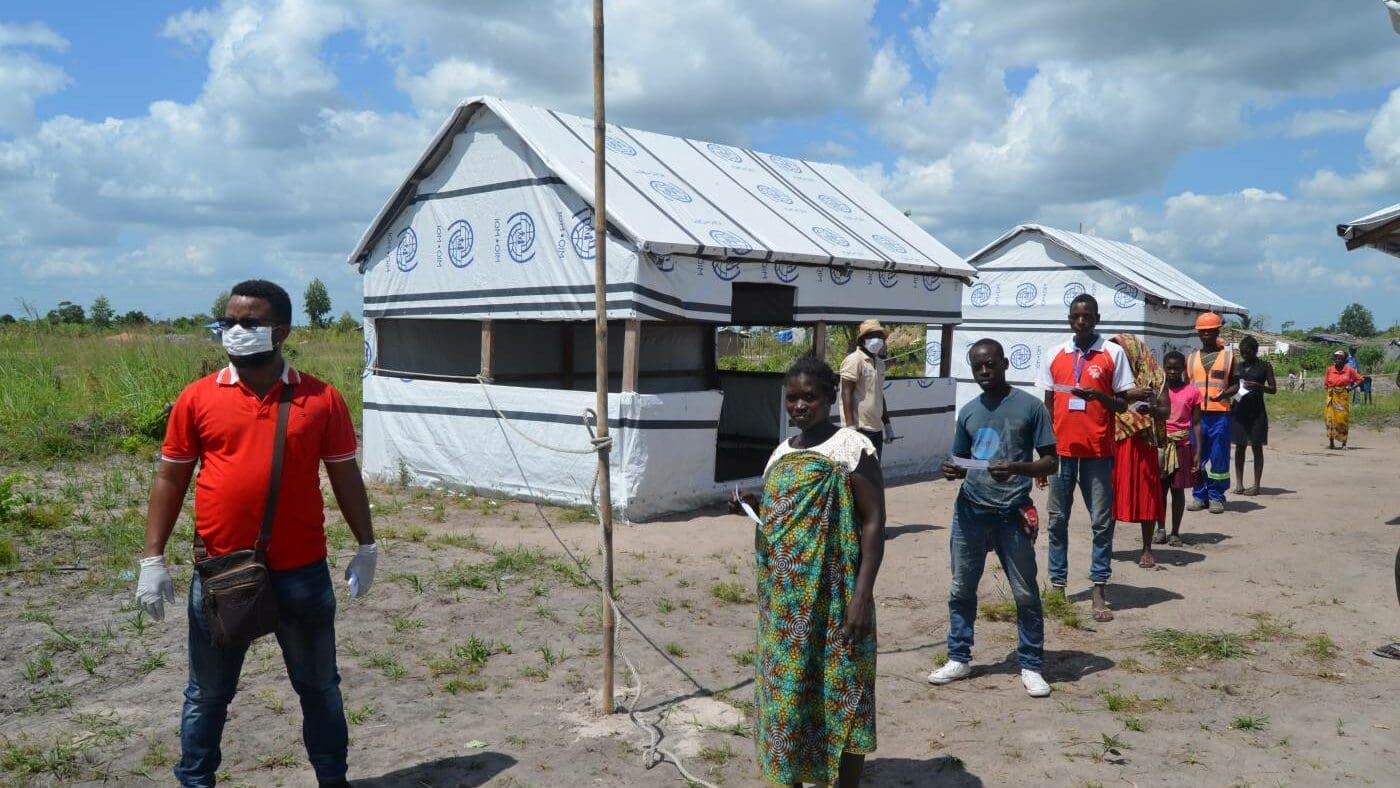
Us Against Hunger:
Hunger, Conflict & COVID-19
Watch Part 1 of the 4-Part series “US Against Hunger,” an exploration into the key drivers of hunger as expert panelists discuss the current issues of global food insecurity.
Hunger & conflict are on the rise
Nearly a quarter of a billion people are now at risk of starvation. Families are finding it harder to put food on the table, child malnutrition is threatening millions and famine is looming. Now, a toxic mix of conflict, climate extremes and the socio-economic fallout from the pandemic are driving people into a deepening phase of extreme hunger.
On December 2, 2020, World Food Program USA launched a series of livestreamed events, US Against Hunger, with it’s inaugural Behind the Frontlines: Hunger and the Confluence of Conflict and COVID-19. It was a timely focus on the dangerous confluence of hunger, war and the coronavirus pandemic. Humanitarian advocate Rima Fakih and New York Times columnist Nicholas Kristof joined United Nations World Food Programme’s Assistant Executive Director Valerie Guarnieri and moderator Femi Oke for a lively exchange of firsthand stories and observations on how this triple threat has upended the health and security of billions of people around the world.
“Across the world, hunger is top of mind more so today than at any other time since World War II,” said Barron Segar, President and CEO, World Food Program USA, introducing the event. “We have the power to help people avert starvation and to help them thrive. To me, this is the greatest calling of my life and of our generation,” he said.
Fighting hunger on the frontlines of conflict and COVID-19
To set the scene for the conversation, Oke introduced compelling U.N. World Food Programme video footage highlighting the link between conflict and hunger and showcasing its work to feed people in conflict zones. The video made a succinct point: food is more than survival; food provides stability and the strength to rebuild a better tomorrow after a crisis.
There is misperception that there is some silver bullet that can address hunger, and it’s just a matter of handing somebody food,” said Kristof, a New York Times columnist who has traveled extensively in South Sudan and other war zones. “It’s infinitely more complicated than that. It’s about equitable distribution, it’s about reaching young people, it’s a matter of anticipating where famine will arise.
Kristof added that the pandemic is disrupting food delivery, income, and remittances and in ways that will affect people indirectly, especially children and girls.
Fakih, former Miss USA 2010 and Ambassador for Children’s Cancer Center Lebanon, survived war and hunger as a child in Lebanon.
“I’m 35 years old and I went through something like this. And today, millions of people are still stuck in the cycle of man-made conflict,” said Fakih.
In a plainspoken appeal for support, Guarnieri emphasized that famine is preventable, but the U.N. World Food Programme urgently needs support to do it.
“We are benefiting from the generosity of the U.S. and other donor countries, but we see the needs growing and the resources shrinking,” she said, adding that the organization needs greater resources to do the increasingly difficult work of delivering food to people during the pandemic, with the ultimate goal of reaching zero hunger.
Oke closed the one-hour discussion with a video recognizing the U.N. World Food Programme staff who risk their lives to help save lives. These courageous men and women, who work in the world’s most dangerous places, have been honored with the 2020 Nobel Peace Prize. The Nobel underscores U.N. World Food Programme’s value as a best-in-class humanitarian organization enabled by generous support from businesses, governments and individuals. And, now, the organization will need greater levels of funding to meet the unprecedented challenge posed by conflict and the pandemic.
Watch the Highlights
Former Miss USA 2010 Rima Fakih, New York Times columnist Nicholas Kristof, and WFP’s Assistant Executive Director Valerie Guarnieri share their firsthand accounts of how conflict, covid and global hunger are threatening the health and security of billions of people around the world.
About US Against Hunger
The US Against Hunger discussion series explores key drivers of hunger and food insecurity, including conflict, gender inequality, climate change and food waste. Each panel convenes high-profile thought leaders, experts, influencers and business leaders across sectors to examine these issues and what must be done to make a Zero Hunger world a reality.